A huge part of traveling is discovering the culture and way of life of the places we visit, and that includes food. Luckily, Japan offers a host of specialty foods and dishes from every region, so there is always something new to devour. As a self-confessed foodie, I make sure to sample the local cuisine and get a taste of my new surroundings. Kochi prefecture, on the southern coast of Shikoku, is no exception. Kochi’s most famous and coveted dish by far is katsuo no tataki (鰹のたたき).
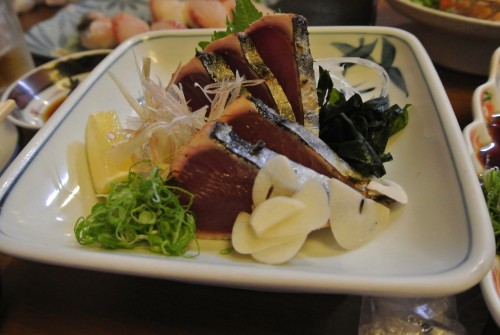
The dish katsuo no tataki is made using katsuo, the smaller-than-regular-tuna skipjack tuna, or bonito. This family of tuna usually reaches 1 meter in length and moves in schools of up to 50,000 fish. Once found in abundance all over Japan, their numbers have decreased over the years. These days, the freshest katsuo is exclusive to Kochi.
The origins of katsuo no tataki
The story goes that Kochi fishermen, unsure of eating fish raw and unable to afford soy sauce, would sprinkle their catch with salt, collect any nearby driftwood to make a fire, then sear the fish right on the beach. Although the accuracy of its roots remains hazy, the dish has grown in popularity and become a well-known symbol of the area. Among the bustling streets of the local market, you’re likely to see the tall, orange flames of a straw fire, brazing the outer edges of the katsuo and leaving the inner flesh intact. This is the traditional method of searing, known as warayaki.
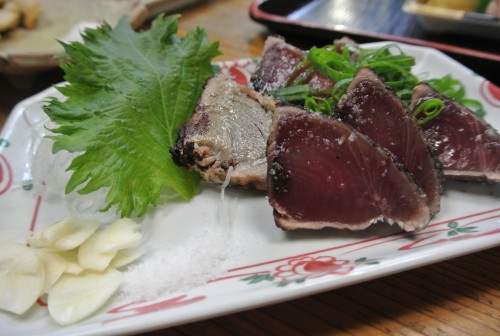
How to eat katsuo no tataki
The presentation of katsuo no tataki is unique. Unlike other sashimi, it is sliced in thicker, larger pieces and arranged on sharing platters called sawachi. Typically served alongside spring onion, raw garlic, shiso leaves and a light sprinkling of salt, there is dispute among Kochi locals as to the best pairings. Rather than the usual wasabi and soy sauce, you are more likely to be served ponzu (ポン酢), a special soy sauce with a citrus kick. All these flavors combined give the katsuo explosion of taste with every mouthful.
Other things to eat in Kochi
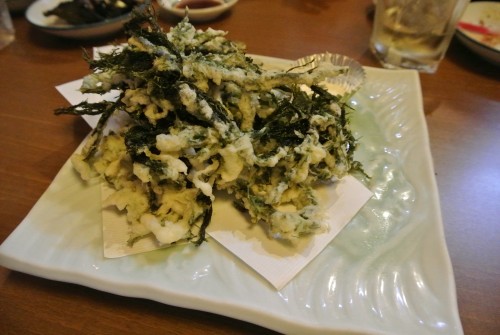
Izakaya, or casual Japanese bars where the food is as important as the drinks, are the best place to discover regional specialties. Local Kochi delicacies include aonori tempura — deep-fried seaweed with a crunchy batter — and also a simple tomato dish, famous for being fresh with a hint of sweetness. Both are excellent side dishes before the spectacular katsuo no tataki sashimi main.
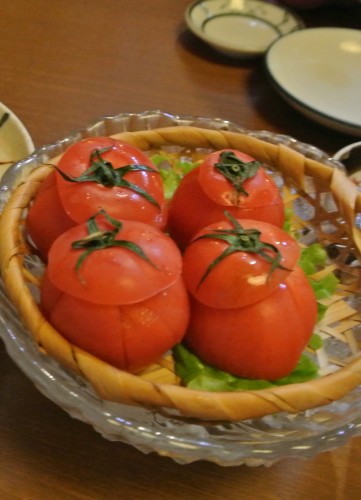
A fun sweet treat I recommend is the bōshi-pan(帽子パン), a.k.a. hat bread. A hat made of brioche; need I say more?
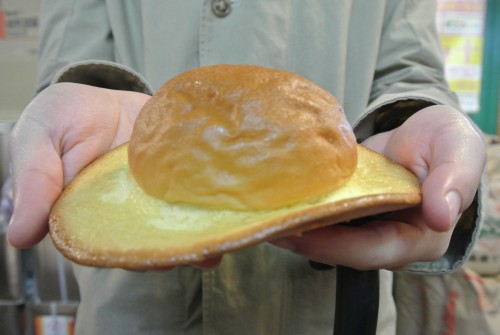
So on your culinary travels, don’t forget to stop by this seaside city. Inland imitations simply cannot beat Kochi’s fresh katsuo no tataki, with its burst of flavors and umami punch. And where else can you find sweet tomatoes and a hat made of bread?

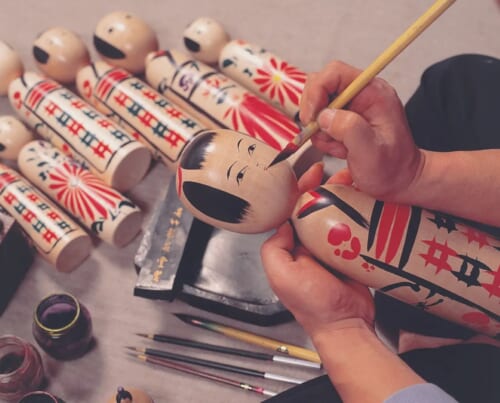
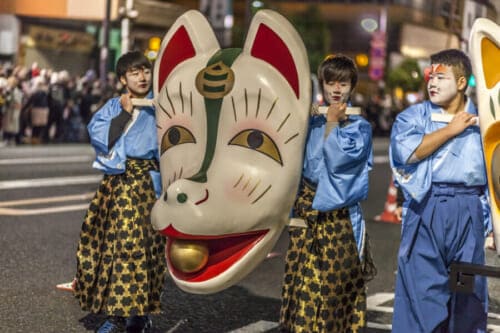
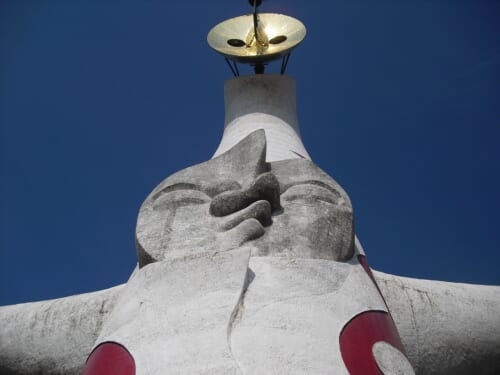
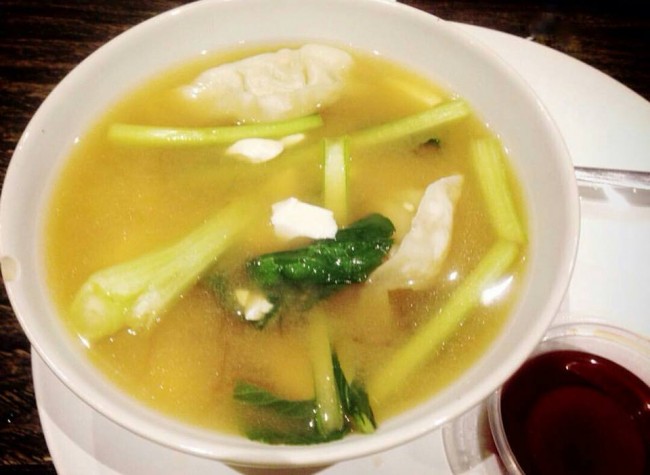
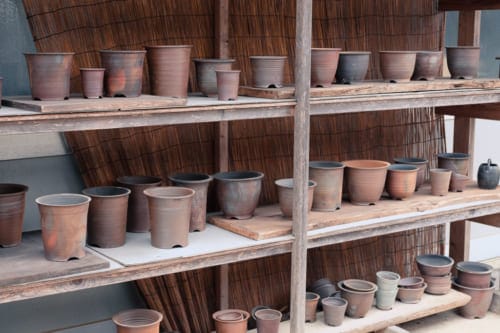


No Comments yet!